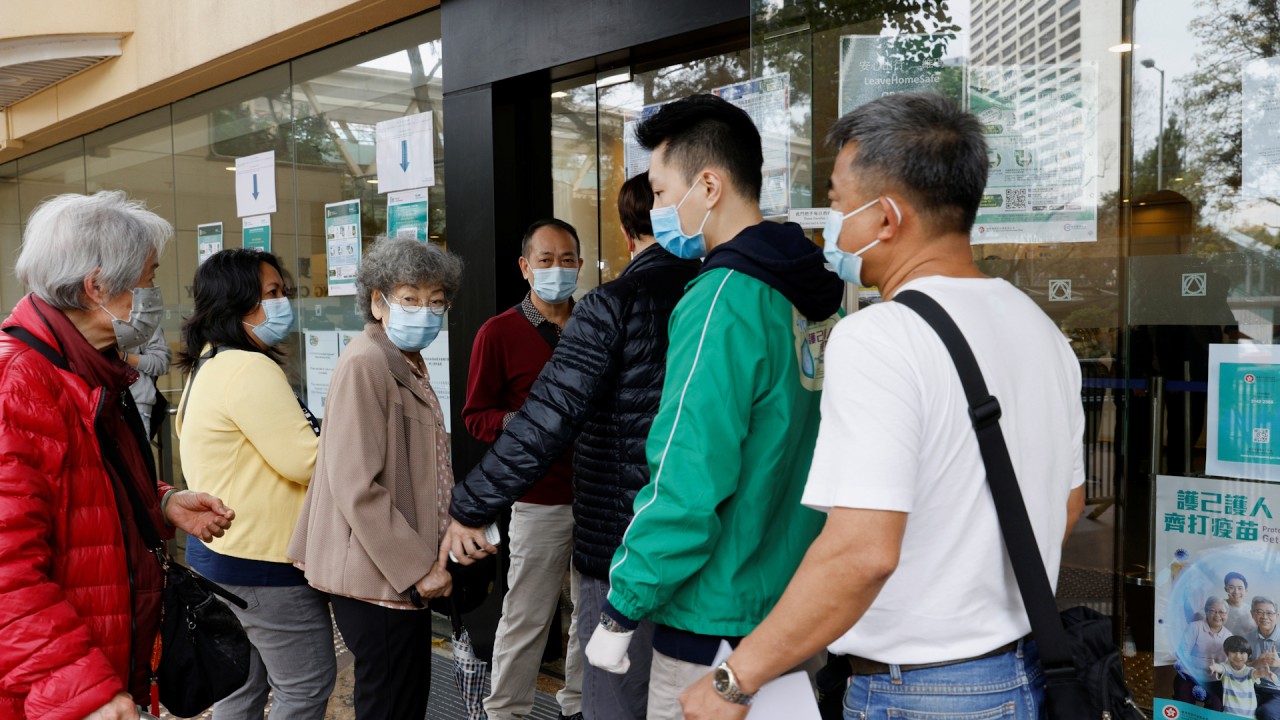
Coronavirus: Hong Kong mall K11 Musea to close for two days and all staff to be tested after restaurant outbreak widens
- Saturday’s 33 new cases is the city’s highest daily tally of infections for more than three weeks
- Unprecedented move comes as 15 new infections linked to restaurant, and worker at Cartier store tests preliminary-positive
“We are worried that there has been some hidden transmissions in the entire block of the K11 Musea shopping centre, therefore we will issue mandatory testing orders to all people working there,” Dr Chuang Shuk-kwan, head of the communicable disease branch of the Centre for Health Protection, said.
She urged anyone who had been to K11 Musea from February 19 to monitor their health and get tested.

A spokeswoman for the shopping centre said it had taken the decision to close on Sunday and Monday for a thorough cleaning.
“To reassure staff, tenants and visitors of our shopping centre, the mall will be closed for two days starting from Sunday, and we will implement a series of epidemic preventive measures,” she said.
So far, 34 infections have been linked to the restaurant, including 15 on Saturday, and of those, 20 were customers, nine employees, and five people considered to be close contacts. Seven preliminary-positive cases on Saturday were also related to the restaurant, including one patron and six close contacts.

Seventy-six people had lunch at the restaurant on February 19, when most of the infected customers visited, only 61 have been identified by health authorities. Chuang urged the rest to contact officials as soon as possible.
In addition to the mandatory testing order issued by health authorities, a spokeswoman for K11 Musea said it would also require staff directly hired by the shopping centre, such as those responsible for property management, to be tested weekly for two consecutive months. They would only be allowed to go to work with a negative test result.
Vaccine roll-out means ‘worst over’ for Hong Kong’s retail sector, says New World
Officials have not been able to say how many people connected to the mall fall under the mandatory testing order, while it also remained unclear how the 33-year-old female Cartier employee had become infected.
“We are not sure whether [the infection of] the staff of that store was related [to the restaurant], but as she worked there and both shops were on the same floor, we are a bit worried,” Chuang said. “It is still possible that some silent transmission has occurred.”
One of the two Cartier stores is on the ground floor of the shopping centre, where part of Mr Ming’s Chinese Dining is also located.
Chuang said they were in contact with the Office of the Government Chief Information Officer to see if notifications could be issued to all people who had previously registered their presence at the mall with the “Leave Home Safe” app.

00:56
Hong Kong begins mass vaccination programme with Covid-19 jabs developed on the Chinese mainland
Saturday’s caseload was the city’s highest daily tally since February 5, and of those, 31 were locally transmitted with 10 of unknown origin.
Chuang said the number of unlinked cases was “a bit high”, and attributed that partly to families getting together over the Lunar New Year holiday earlier this month. At least five of Saturday’s suspected cases also did not have a clear source of infection.
There were two imported cases from India and the Philippines, and about 20 people have tested preliminary-positive for the virus.
The government said on Saturday the entry ban on people who had recently been in Brazil, Ireland, South Africa, and Britain, would continue.
Strict security for Hong Kong’s new delivery of 585,000 BioNTech Covid-19 jabs
The total number of confirmed cases in the city now stands at 10,983, with 198 related deaths.
Saturday also marked the start of the tightened criteria for putting people under quarantine and testing. Under the latest arrangements, mandatory testing will be triggered for all staff at a workplace if an employee becomes infected with Covid-19.
At least seven workplaces were issued mandatory testing orders on Saturday.
The other two newly enforced measures will see those who had close contact within seven days of a patient developing Covid-19 symptoms put into quarantine, and the isolation of family members of a patient’s close contact who had symptoms.
The Hospital Authority also revealed that a warning letter had been issued to a laboratory contractor for failing to provide Covid-19 test results within 48 hours as stipulated in the contract, which resulted in some people waiting more than a week to discover if they had the virus.
A source had earlier named the company in question as Prenetics.
Releasing a five-page article to review the government work in fighting the pandemic over the past 13 months, the city’s leader, Carrie Lam Cheng Yuet-ngor, said the fourth wave that began in late November had apparently eased, but “now is not the time to drop our guard”.
The chief executive said the number of local cases from unknown sources reported daily indicated that there were still undetected infections in the community, while social gatherings during Lunar New Year, and the relaxation of social-distancing measures had also brought certain risks.


